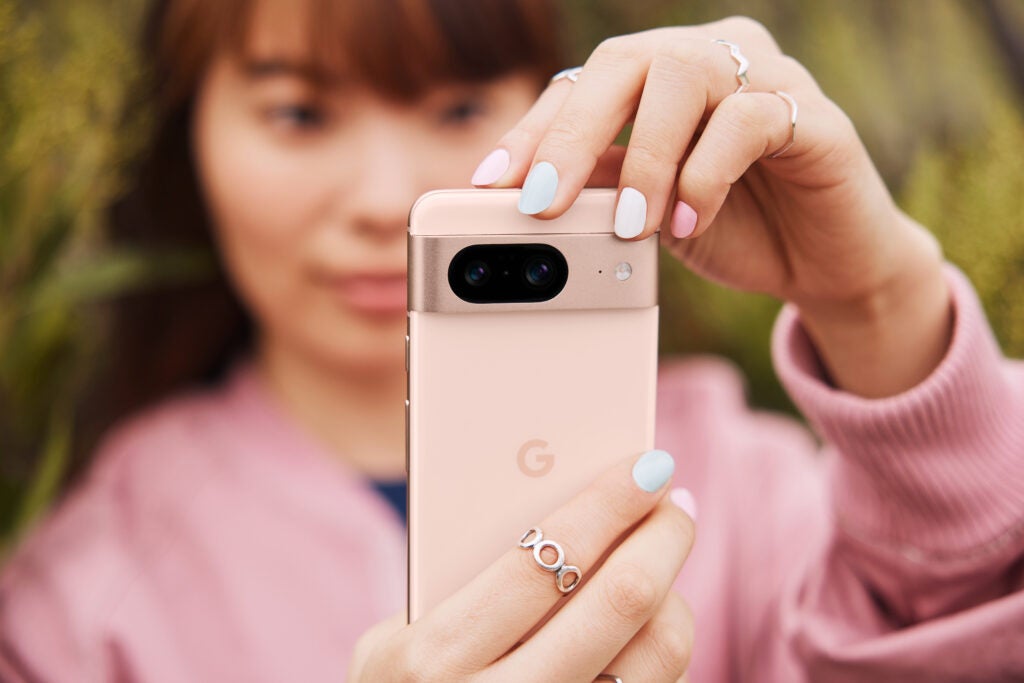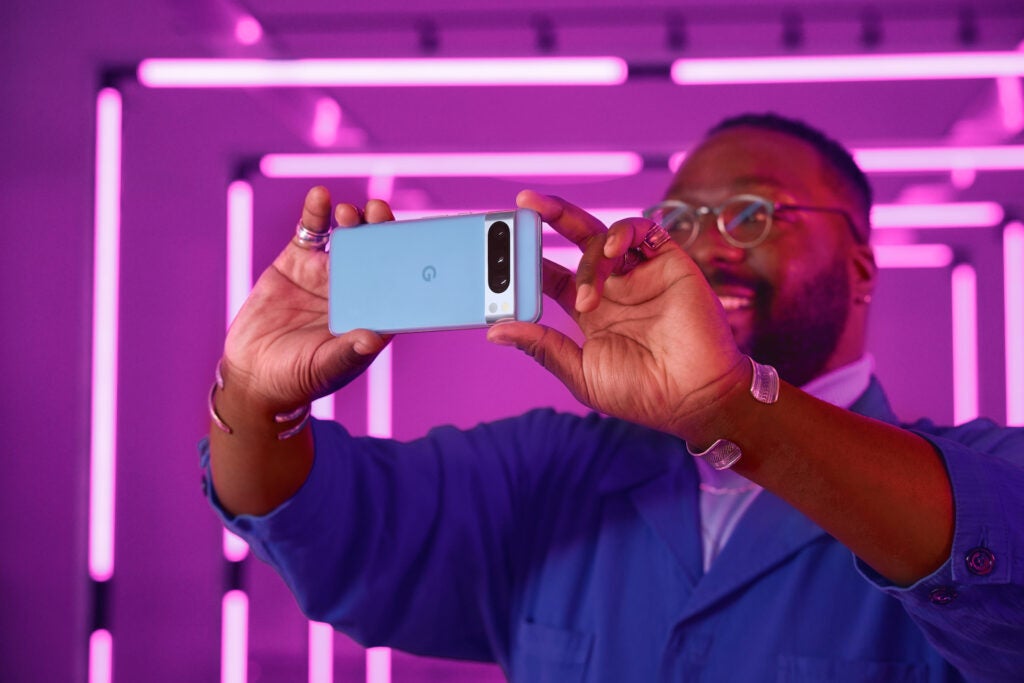Google Pixel 8 & Pixel 8 Pro: Everything you need to know

Google has finally unveiled its 2023 flagship collection in the form of the Google Pixel 8, and its premium sibling, the Pixel 8 Pro.
While a refreshed design is a welcome change for this year’s premium range, it’s very much an incremental year for Google’s flagship smartphone range with a swathe of tweaks rather than big new features for consumers to play with.
That comes in various forms, from the upgraded Tensor G3 chipset to slightly boosted camera tech and new software features exclusive to the Pro model that might make it the more tempting upgrade of the two.
With all that said, here’s everything you need to know about the Google Pixel 8 and the Pixel 8 Pro, from release date and pricing details to the key new features of the flagship smartphone range.

Forget the iPhone 15, the 14 Pro Max is finally on the cheap
Get the iPhone 14 Pro Max on a 24-month contract for just £43.99 per month with £159 upfront, complete with unlimited calls and texts, and 100GB of 5G data.
- Mobiles.co.uk
- £159 upfront
- £43.99 per month
When will the Google Pixel 8 & Pixel 8 Pro be released?
The Google Pixel 8 and Pixel 8 Pro will both go up for sale on 12 October 2023 in the UK, US and other regions around the world, though pre-orders should be live well ahead of release for keen fans to get their orders in.
How much will the Google Pixel 8 & Pixel 8 Pro cost?
Here’s the kicker: both the Google Pixel 8 and Pixel 8 Pro are more expensive than their predecessors, whether you’re in the UK or the US.
Those in the US can pick up the Pixel 8 for $699, a $100 increase on the Pixel 7, while the Pixel 8 Pro costs $999, a whopping $150 more than the Pixel 7 Pro. That’s a similar story in the UK at £699 and £999, representing a £100 and £150 increase respectively.
While that’s still relatively cheap compared to the Samsung Galaxy S23 Ultra and iPhone 15 Pro Max, it’ll still be a hard pill for Pixel fans to swallow.
What’s new with the Google Pixel 8 & Pixel 8 Pro?
The Google Pixel 8 and Pixel 8 Pro aren’t complete redesigns, but a tweaked design and booster hardware could make them very tempting flagship options.
The Google Pixel 8 boasts an upgraded 6.2-inch OLED Actua display that Google claims delivers sharp colours and vivid details, while a faster 120Hz refresh rate allows the Pixel 8 to better compete with the 120Hz-enabled competition – something found at even the cheap end of the Android market.

If you want an adaptive refresh rate, however, you’ll have to fork out for the Pixel 8 Pro and its larger 6.7-inch OLED Actua display, boasting LTPO tech that allows it to drop down to as little as 1Hz to save on battery life – an improvement on the 10Hz of the 7 Pro.
Both smartphones feature an upgraded Google-designed chipset at their heart in the form of the new Tensor G3 chipset. Google was coy about year-on-year improvements to the chipset, but claimed that it can process 10x as much AI data as the Tensor G1 found in the two-year-old Pixel 6. Regardless, we should see strong everyday performance from both smartphones, though it’s the Pixel 8 Pro that makes the most of the added AI prowess.

That comes in several forms, but it’s mostly focused on the camera experience. It boasts upgraded hardware, boasting an improved 50MP main, a heavily upgraded 48MP ultrawide and near-identical 48MP 5x telephoto and access to exclusive shooting modes like Pro mode that allows for more complex camera tweaks than previous Pixel phones.
That’s not to say that the Pixel 8 hasn’t had an upgrade – it sports the same 50MP main camera as the Pro model, flanked by the same 12MP ultrawide as its predecessor – but it’s not quite as capable as its more premium sibling.
Google claims that both smartphones should deliver more than 24 hours of battery life from larger 4485mAh and 4950mAh cells respectively, though given how much battery life has been an issue with previous Pixel smartphones, we’d take that claim with a pinch of salt.

Arguably most impressive of all is Google’s updated long-term software promise. While its previous commitment to 3 OS upgrades and five years of security patches was competitive, it wasn’t the best around.
However, Google looks to rectify that with this year’s Pixel range with both devices offering an industry-leading 7 years of OS upgrades and security patches, though it’s unclear right now whether that’ll include 7 OS upgrades. If so, it could see the Pixel 8 and 8 Pro supported all through to Android 20.


